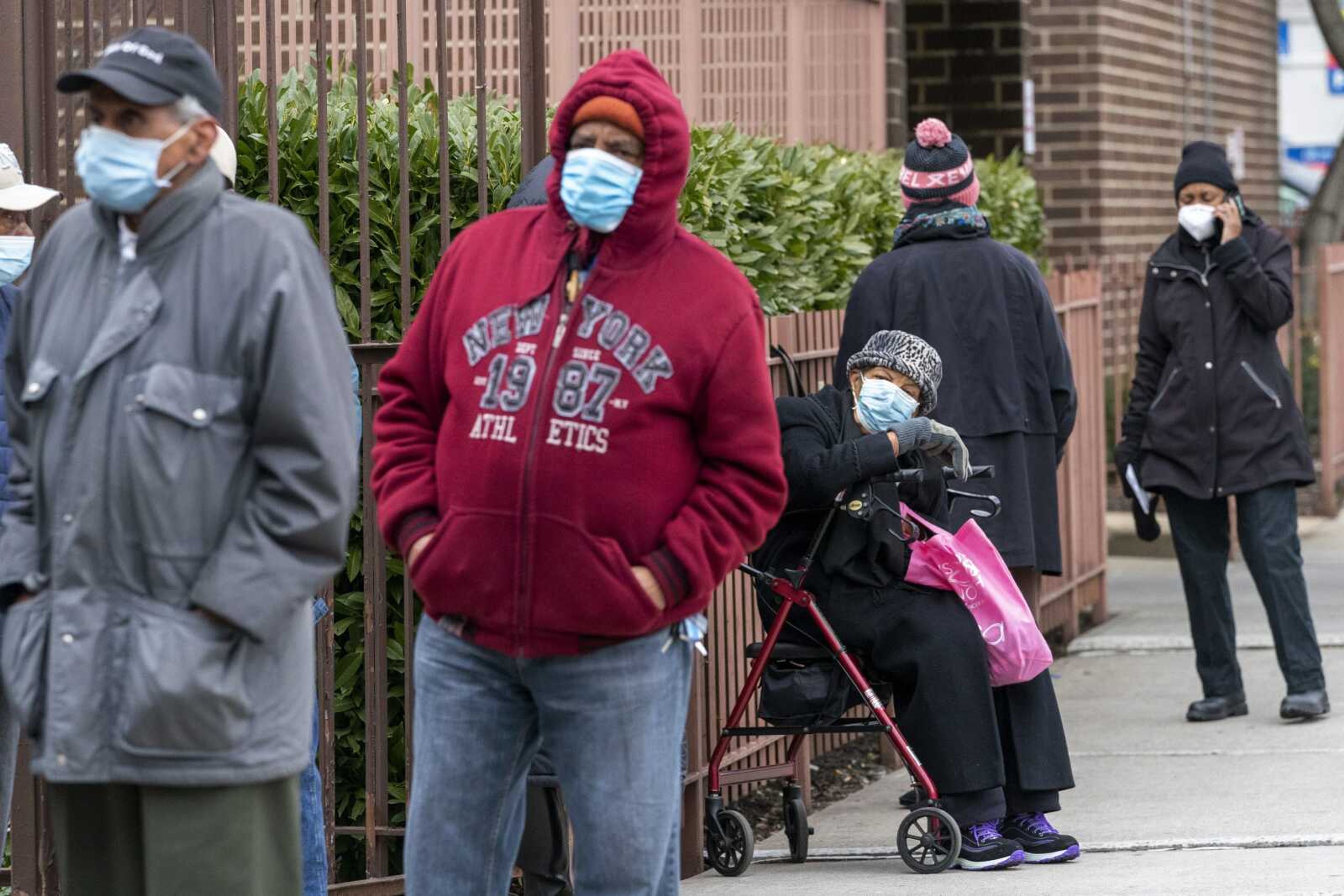Democratic lawmakers push for race data in vaccinations
Democratic lawmakers are urging federal health officials to address racial disparity in vaccine access nationwide, as data from some states show hard-hit nonwhite Americans who are eligible to receive it are not getting COVID-19 vaccinations in proportion to their share of the population...
Democratic lawmakers are urging federal health officials to address racial disparity in vaccine access nationwide, as data from some states show hard-hit nonwhite Americans who are eligible to receive it are not getting COVID-19 vaccinations in proportion to their share of the population.
In a letter Thursday to acting Health and Human Services Secretary Norris Cochran IV, the lawmakers said the agency must work with states, municipalities and private labs to collect and publish demographic data of vaccine recipients.
Without that information, policymakers and health workers cannot efficiently identify vaccine disparities in the hardest-hit communities, said the letter, signed by Rep. Ayanna Pressley and Sens. Elizabeth Warren and Edward Markey, all from Massachusetts.
"It is critical that the Black, Latinx, Indigenous, and immigrant communities that have been most impacted by this virus and have been more likely to contract, be hospitalized, and die from the disease have access to the vaccine," said the letter, first shared with The Associated Press.
The appeal comes as the U.S. recorded nearly 26 million COVID-19 cases and more than 429,000 deaths since the onset of the pandemic nearly a year ago. The virus has taken a particularly severe toll on Black populations in the U.S. Along with Hispanic and Native American people, Black Americans are dying from COVID-19 at nearly three times the rate of white Americans.
The lawmakers said the recent distribution of the approved vaccines "is a sign of hope that much needed recovery from this pandemic is near." But, they said, an inadequate vaccine deployment campaign could make things worse for communities that have shouldered the greatest burden.
A spokesperson for HHS did not immediately respond to a request for comment Thursday. However, reducing racial and ethnic disparities in COVID-19 vaccination and treatment is a priority for President Joe Biden, who has appointed a White House official to oversee that part of the government's overall response.
Pressley, who made early calls for racial case data last year, said communities of color cannot afford to wait longer for vaccine demographic data to become available.
"We've learned consistently throughout history that in the face of any public health crisis, communities of color disproportionately suffer -- and this pandemic is no exception," Pressley said in a statement to the AP.
"That which gets measured gets done, and the first step towards ensuring we are able to effectively address these disparities and direct lifesaving resources to our hardest-hit communities is for our government to collect and publish anonymized demographic data, including race and ethnicity, of vaccine recipients," she said.
Dr. Uche Blackstock, CEO of Advancing Health Equity, said the data is crucial to help inform efforts to reach vulnerable populations and communities of color that distrust the medical community because of racism and structural inequities that have long existed in America.
"We're going to see a widening and exacerbation of the racial health inequities that were here before the pandemic and worsened during the pandemic if our communities cannot access the vaccine," said Blackstock, an emergency physician based in Brooklyn, New York.
"We could see years taken off the lives of Black Americans in this country and a worsening of life expectancy that will probably take generations to recover from," Blackstock said. "There needs to be a plan and unfortunately I don't see that happening with the urgency that it should."
A lack of transparency on who is receiving the vaccine will only foment greater distrust of health officials, the lawmakers said in the letter.
Dr. Marcella Nunez-Smith, who chairs the COVID-19 equity task force appointed by Biden, has pointed to gaps in data as one of the issues she's trying to resolve.
During a White House briefing on Wednesday, Nunez-Smith said federal officials were calling for states to "get better, more consistent data" on the already administered vaccinations.
"We are 100% committed to making sure that when it's your turn, that you have access to the vaccine, and we know that access in many communities that have been hard hit might be a challenge," Nunez-Smith said.
According to a December survey from The Associated Press-NORC Center for Public Affairs Research, 53% of white Americans said they would get vaccinated, compared with 24% of Black Americans and 34% of Hispanics. Due to an insufficient sample size, the survey could not analyze results among Native Americans or other racial and ethnic groups that make up a smaller proportion of the U.S. population.
Nationwide, health officials in 18 states included ways to measure equity in their vaccine distribution plans last fall. But as issues in the vaccine supply chain emerged, some states have had to slow or rework distribution plans.
Still, many are keeping racial equity in the forefront.
An advisory committee in Oregon that provides recommendations to the governor and public health authorities is set to vote Thursday on whether to prioritize people of color, target those with chronic medical conditions or focus on some combination of groups at higher risk from the coronavirus.
Connect with the Southeast Missourian Newsroom:
For corrections to this story or other insights for the editor, click here. To submit a letter to the editor, click here. To learn about the Southeast Missourian’s AI Policy, click here.









